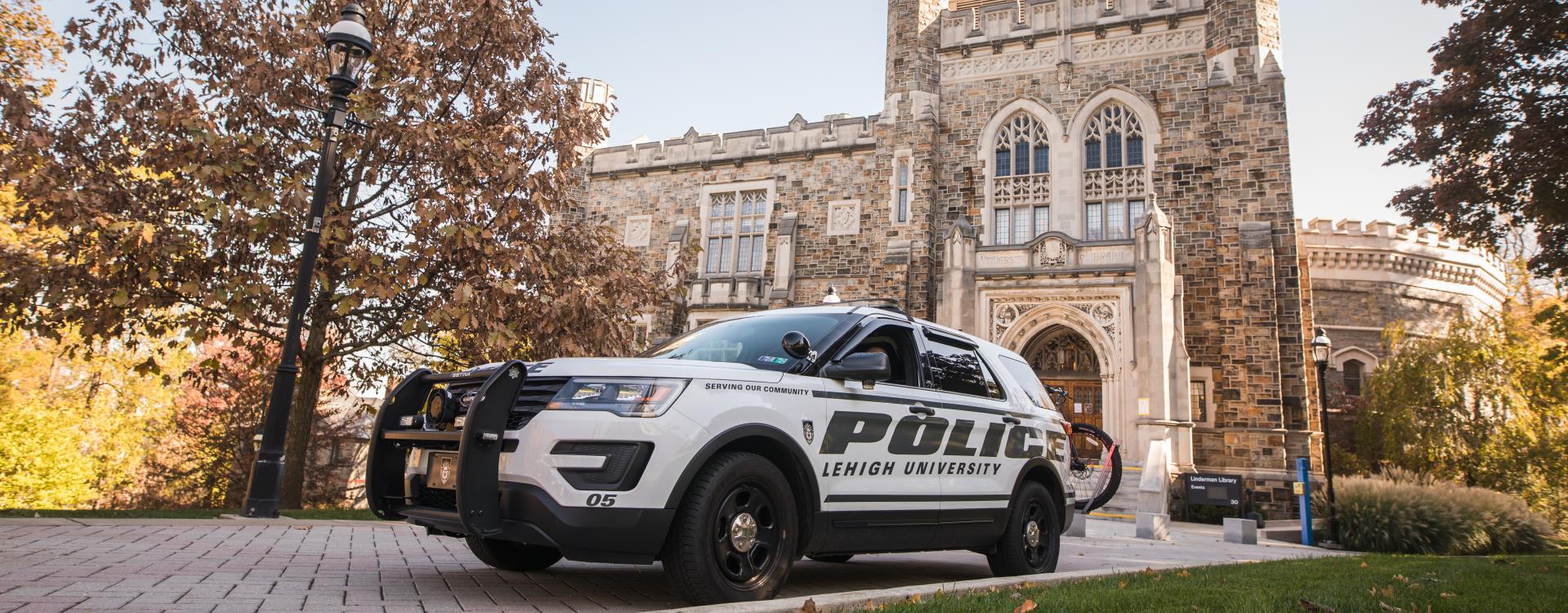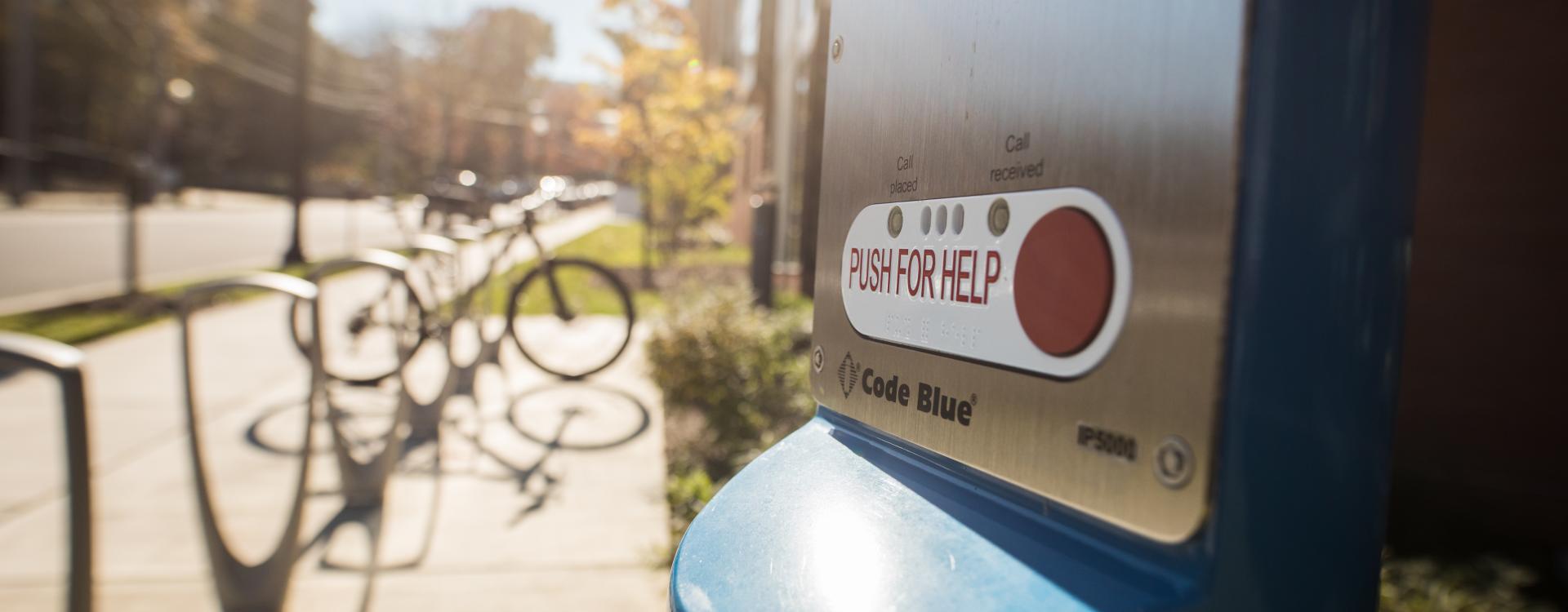The Lehigh University Police Department provides around-the-clock policing and security services to the university community. Officers patrol all university-owned and leased properties, respond to and investigate crimes, and manage both active and past emergencies.
We believe everyone deserves to feel safe, respected, and empowered in a community built on trust. Our core mission is to protect life, property, and public peace, especially safeguarding the vulnerable. We pursue this by earning trust through meaningful, one-on-one interactions, and believe that trust is earned one person, one conversation, one interaction at a time.
The department is accredited by the Pennsylvania Chiefs of Police Association. All Lehigh Police Officers are fully certified under Pennsylvania’s Act 120 Municipal Police Officer Certification Program. They undergo a rigorous selection process, background check, field training, and a probationary period. Officers are authorized under Pa. C.S.A. §501 to enforce Pennsylvania state laws and Bethlehem city ordinances both on campus and in surrounding areas. The department maintains strong relationships with the Bethlehem Police and other local and state agencies.
The department includes the AVP of Campus Safety & Chief of Police, Assistant Chief, a captain, three lieutenants, four sergeants, sixteen officers, six Campus Safety Dispatchers, an Administrative Director, a Business Manager, four full-time Security Guards, and several part-time Police and Security Guards. A substation is also located at 3rd & New Streets in Bethlehem.
Beyond the required state training, officers receive annual CPR certification, biannual firearms requalification, and ongoing instruction on topics such as mental health, medical emergencies, substance abuse, and impaired driving.
Our in-service training is broad and continuously updated to reflect best practices in policing and emergency response. We are committed to maintaining the highest professional standards and continually improving our service to the Lehigh community.
The department reports all crimes to the Pennsylvania Uniform Crime Reporting System (UCR), managed by the Pennsylvania State Police Bureau of Research and Development. We also submit annual reports to the U.S. Department of Education, as required by the Jeanne Clery Act and the Higher Education Opportunity Act.




